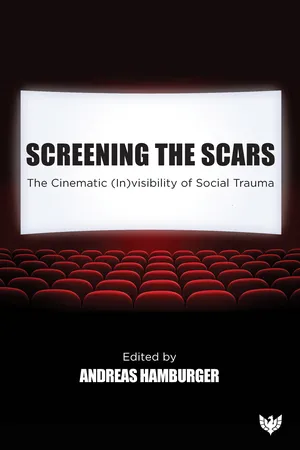
- English
- ePUB (mobile friendly)
- Available on iOS & Android
About this book
With contributions from Özcan Alper, Damir Arsenijevi?, Friederike Bassenge, Alen Drljevi?, Andreas Hamburger, Camellia Hancheva, Dženana Husremovi?, Lars Kraume, Dijana Jela?a, Ajna Jusi?, Cem Kaptanoglu, Stephan Komandarev, Maida Koso-Drljevi?, Nadia Kozhouharova, Gamze Özçürümez, Tatjana Petzer, Vivian Pramataroff-Hamburger, Goran Radovanovi?, Biljana Stankovi?, Svetlozar Vassilev, and Jasmila Žbani?.
In the last decade, the concept of trauma has experienced a surprising boom in sociological and media debates. In a culture of outrage, blanket narratives of victimhood often overshadow the concrete, known social violations and their observable real economic and psychological consequences. The aim of this volume is to reflect on this shift in discourse and to compare it with the concrete historical backgrounds and psychosocial constitutions of countries that have been haunted by social trauma in different ways. In discussing feature films from Germany and four Balkan countries, the book presents the distinct social-traumatic histories, how they are negotiated in different societies, and the motifs cinema uses to narrate them.
The award-winning films featured are Sadilishteto [ The Judgement ], Grbavica [ Esma's Secret – Grbavica ], Muškarci ne pla?u [ Men Don't Cry ], Enklava [ Enclave ], Der Staat gegen Fritz Bauer [ The People vs. Fritz Bauer ], and Sonbahar [ Autumn ]. The individual film analyses are each accompanied by interviews with the filmmakers and introduced by overarching themes, the role of cinema as a place of social understanding in a post-traumatic society, and the methodology of film analysis.
With contributions from the worlds of film, psychoanalysis, activism, psychiatry, film studies, literary and cultural studies, psychology, trauma studies, philosophy, psychotherapy, and human relations, this book has a broad appeal. It is a must-read for those looking for a deeper insight into social trauma and the impact of sociocultural factors, shown so clearly through the filmmaker's lens.
Frequently asked questions
- Essential is ideal for learners and professionals who enjoy exploring a wide range of subjects. Access the Essential Library with 800,000+ trusted titles and best-sellers across business, personal growth, and the humanities. Includes unlimited reading time and Standard Read Aloud voice.
- Complete: Perfect for advanced learners and researchers needing full, unrestricted access. Unlock 1.4M+ books across hundreds of subjects, including academic and specialized titles. The Complete Plan also includes advanced features like Premium Read Aloud and Research Assistant.
Please note we cannot support devices running on iOS 13 and Android 7 or earlier. Learn more about using the app.
Information
Table of contents
- Cover Page
- Half Title
- Full Title
- Copyright
- Contents
- About the authors and contributors
- Introduction: Cinematic art and the void
- Part I: Cinematic experience of social trauma
- Part II: Films and talks
- Epilogue
- Index